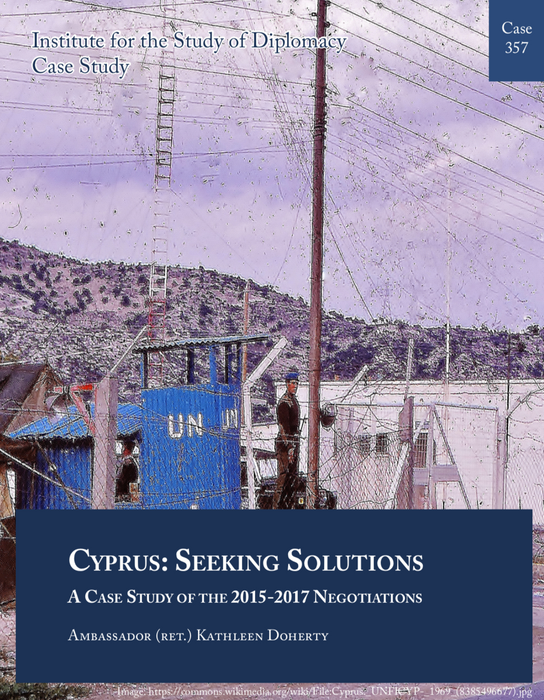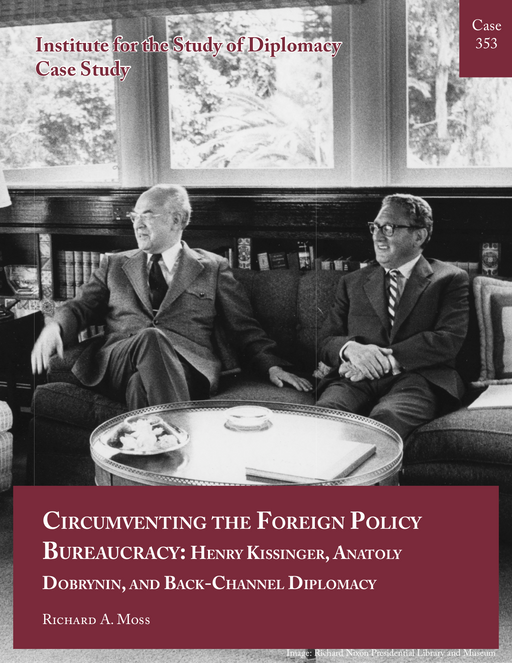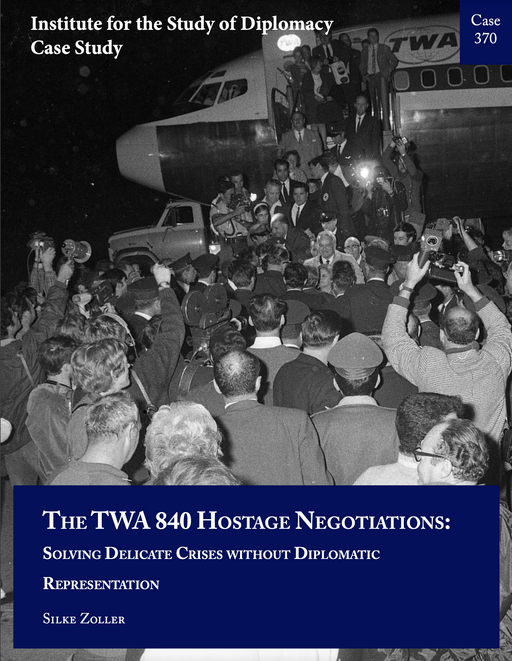Case 357 - Cyprus: Seeking Solutions - A Case Study of the 2015-2017 Negotiations
by Institute for the Study of Diplomacy at Georgetown University
$ 4.50
Ambassador (ret.) Kathleen Doherty
This case study examines the twenty-six months of UN-facilitated, Cypriot-led negotiations to reunify the island of Cyprus from May 2015 to July 2017. Drawing upon the author’s experience as U.S. ambassador to Cyprus during this period, the case assesses the roles and negotiating positions of the Greek Cypriot and Turkish Cypriot leaders, the United Nations, the European Union, the governments of the United Kingdom, Turkey, Greece, Russia, France, and the United States. Historically the United States has played the role of “honest broker” in negotiations over Cyprus; during this period, then Vice President Biden and later Vice President Pence took an active interest in the talks. Despite a promising start and being seen as the best chance for success in a decade, the negotiations failed in the early hours of July 6, 2017. “I’m very sorry to tell you that despite the very strong commitment and engagement of all the delegations and different parties ... the conference on Cyprus was closed without an agreement being reached,” stated United Nations Secretary-General António Guterres.
The study explores the issues involved and the positions of the various actors, and identifies factors that contributed to the negotiations’ failure. Since positions and explanations are not all in the public domain, the analysis is indicative, not comprehensive.
Students could debate the validity of the known negotiating positions and discuss whether options existed that could have been more acceptable to all the parties. The case highlights the structure and limitations of multilateral diplomacy. Cyprus’ continued division, often referred to as the “Cyprus problem”, poses a significant impediment to EU-NATO cooperation, is a source of tension within the EU and between Turkey and Greece, and complicates the energy picture of the Eastern Mediterranean region. Instructors could open additional discussions about these consequences.



